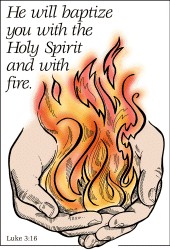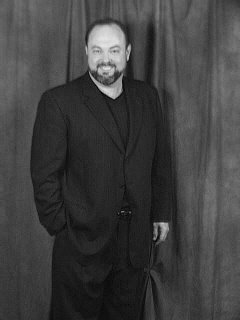
As I scanned my previous historical overview, I noticed huge gaps in the narrative, but to fill in all those gaps would necessitate a book.
What I am trying to do is create some sense of context to the Pentecostal movement to give the reader a perspective as to why the Pentecostal movement happened and why it seems to be fast becoming the dominant Christian expression of the majority of Christians in the West.
I also intend in this post to begin talking about the positive aspects of the movement as I see it.
At the turn of the 20th century small groups of Christians began reporting certain people "speaking in tongues" first at a small Bible college in Topeka, Kansas and then at a small store front "holiness" church on Azuza Street in Los Angeles. Early Pentecostals were, for the most part, from "holiness" churches like Methodism or other "holiness" groups that believed in "second blessing holiness" or sanctification which gave the believer the "power" to lead a holy life.
When one looks at all these historical movements, from the early works of John and Charles Wesley, to the British Keswick "Higher Life" movements, to late 19th century "faith healers," to the emergence of the Pentecostal movement, all these movements had one overriding motivation: to "restore" Christianity to its former glory and power.
Every offshoot since the beginning of the Pentecostal movement has similar goals. Even when the "holiness" movement spit into Pentecostal (Assemblies of God, United Pentecostal Church, Church of God, and others) and non-Pentecostal movements (Nazarene Church, Wesleyan Churches, Christian and Missionary Alliance Churches) they still maintained this distinctive of believing their particular movement was some kind of restoration or rediscovery of the power of the Holy Spirit given to the first Apostles that had been "lost" somewhere along the way.
 Typically these Pentecostal churches were led by strong personalities, and this religious movement allowed both men and women to pastor. It didn't discriminate as to race either. William Seymour, the pastor of the little church on Azuza Street where most say the modern Pentecostal movement started was an African-American. Many of the leaders, especially in the Pentecostal Assemblies of the World denomination, were black. There was an egalitarian value to this movement.
Typically these Pentecostal churches were led by strong personalities, and this religious movement allowed both men and women to pastor. It didn't discriminate as to race either. William Seymour, the pastor of the little church on Azuza Street where most say the modern Pentecostal movement started was an African-American. Many of the leaders, especially in the Pentecostal Assemblies of the World denomination, were black. There was an egalitarian value to this movement.
The movement was also marked by both personal demands for "holy" living, which usually meant that Pentecostal believers avoided the "worldly" entertainments of the day and strict prohibitions against alcholic beverages, and by ecstatic religious experiences, the most notable being "speaking in tongues" or glossolalia.
It is not within the scope of these articles to explore this historical subject thoroughly, but the above should give the reader at least a beginning in understanding the infancy of Pentecostalism.
As a former Pentecostal layperson and as a former pastor of a Pentecostal church, I owe a debt to my upbringing. These folks taught me the name of Jesus and shaped me to be both passionate for God and devoted to Him.
The good I see in Pentecostalism, and the reason I believe that the movement can be of great help to Christians in the West in rediscovering an Orthodox Christian faith, is that:
First, Pentecostalism throws into start relief one of the fundamental poverties of Western Christian theology - The Person of the Holy Spirit. A whole series of books could be written to talk about this point alone. When the West failed to balance the sterile effects of rationalism with a doctrinally and patristically informed mysticism, it set itself up for just the kind of pendulum swing it now sees in Pentecostalism. The human soul demands intimacy with God, and this intimacy is meant to be as real and as knowable as God is Himself. Reducing the faith to mere assent to propositional statements falls into the heresy of Docetism.
Second, Pentecostalism reinforces a sense of "mission" in their adherents. The whole point of receiving this "power" from the Holy Spirit was never just to make a person "feel good," but to set that very person free to win the lost and spread the Good News. This movement is now sweeping through Central and South America, the African continent, and even in secularized Europe and the United States challenging the religious establishment everywhere it goes to try to match its missionary zeal.
Finally, Pentecostalism dares to believe in miracles and God's direct intervention into the lives of everyday people. This "expectation" of God's work in a person's daily life makes God more than just a far off deity keeping score of your good and bad deeds. This God is a God Who cares about your sick child, your dire circumstances, and your eternal salvation. That kind of personal faith is a source of great comfort and encouragement.
These positive aspects of Pentecostalism are certainly not exclusive to this very young movement, but with the phenomenal growth of Pentecostalism, it certainly is important to note since your neighbor or even a relative is probably involved or touched by the Pentecostal movement.
Next, The Fire Fails
What I am trying to do is create some sense of context to the Pentecostal movement to give the reader a perspective as to why the Pentecostal movement happened and why it seems to be fast becoming the dominant Christian expression of the majority of Christians in the West.
I also intend in this post to begin talking about the positive aspects of the movement as I see it.
At the turn of the 20th century small groups of Christians began reporting certain people "speaking in tongues" first at a small Bible college in Topeka, Kansas and then at a small store front "holiness" church on Azuza Street in Los Angeles. Early Pentecostals were, for the most part, from "holiness" churches like Methodism or other "holiness" groups that believed in "second blessing holiness" or sanctification which gave the believer the "power" to lead a holy life.
When one looks at all these historical movements, from the early works of John and Charles Wesley, to the British Keswick "Higher Life" movements, to late 19th century "faith healers," to the emergence of the Pentecostal movement, all these movements had one overriding motivation: to "restore" Christianity to its former glory and power.
Every offshoot since the beginning of the Pentecostal movement has similar goals. Even when the "holiness" movement spit into Pentecostal (Assemblies of God, United Pentecostal Church, Church of God, and others) and non-Pentecostal movements (Nazarene Church, Wesleyan Churches, Christian and Missionary Alliance Churches) they still maintained this distinctive of believing their particular movement was some kind of restoration or rediscovery of the power of the Holy Spirit given to the first Apostles that had been "lost" somewhere along the way.
 Typically these Pentecostal churches were led by strong personalities, and this religious movement allowed both men and women to pastor. It didn't discriminate as to race either. William Seymour, the pastor of the little church on Azuza Street where most say the modern Pentecostal movement started was an African-American. Many of the leaders, especially in the Pentecostal Assemblies of the World denomination, were black. There was an egalitarian value to this movement.
Typically these Pentecostal churches were led by strong personalities, and this religious movement allowed both men and women to pastor. It didn't discriminate as to race either. William Seymour, the pastor of the little church on Azuza Street where most say the modern Pentecostal movement started was an African-American. Many of the leaders, especially in the Pentecostal Assemblies of the World denomination, were black. There was an egalitarian value to this movement.The movement was also marked by both personal demands for "holy" living, which usually meant that Pentecostal believers avoided the "worldly" entertainments of the day and strict prohibitions against alcholic beverages, and by ecstatic religious experiences, the most notable being "speaking in tongues" or glossolalia.
It is not within the scope of these articles to explore this historical subject thoroughly, but the above should give the reader at least a beginning in understanding the infancy of Pentecostalism.
As a former Pentecostal layperson and as a former pastor of a Pentecostal church, I owe a debt to my upbringing. These folks taught me the name of Jesus and shaped me to be both passionate for God and devoted to Him.
The good I see in Pentecostalism, and the reason I believe that the movement can be of great help to Christians in the West in rediscovering an Orthodox Christian faith, is that:
First, Pentecostalism throws into start relief one of the fundamental poverties of Western Christian theology - The Person of the Holy Spirit. A whole series of books could be written to talk about this point alone. When the West failed to balance the sterile effects of rationalism with a doctrinally and patristically informed mysticism, it set itself up for just the kind of pendulum swing it now sees in Pentecostalism. The human soul demands intimacy with God, and this intimacy is meant to be as real and as knowable as God is Himself. Reducing the faith to mere assent to propositional statements falls into the heresy of Docetism.
Second, Pentecostalism reinforces a sense of "mission" in their adherents. The whole point of receiving this "power" from the Holy Spirit was never just to make a person "feel good," but to set that very person free to win the lost and spread the Good News. This movement is now sweeping through Central and South America, the African continent, and even in secularized Europe and the United States challenging the religious establishment everywhere it goes to try to match its missionary zeal.
Finally, Pentecostalism dares to believe in miracles and God's direct intervention into the lives of everyday people. This "expectation" of God's work in a person's daily life makes God more than just a far off deity keeping score of your good and bad deeds. This God is a God Who cares about your sick child, your dire circumstances, and your eternal salvation. That kind of personal faith is a source of great comfort and encouragement.
These positive aspects of Pentecostalism are certainly not exclusive to this very young movement, but with the phenomenal growth of Pentecostalism, it certainly is important to note since your neighbor or even a relative is probably involved or touched by the Pentecostal movement.
Next, The Fire Fails



1 comment:
I've corrected a few spelling errors I just caught. I do trust this series of articles will be informative.
Post a Comment